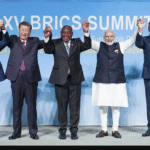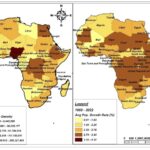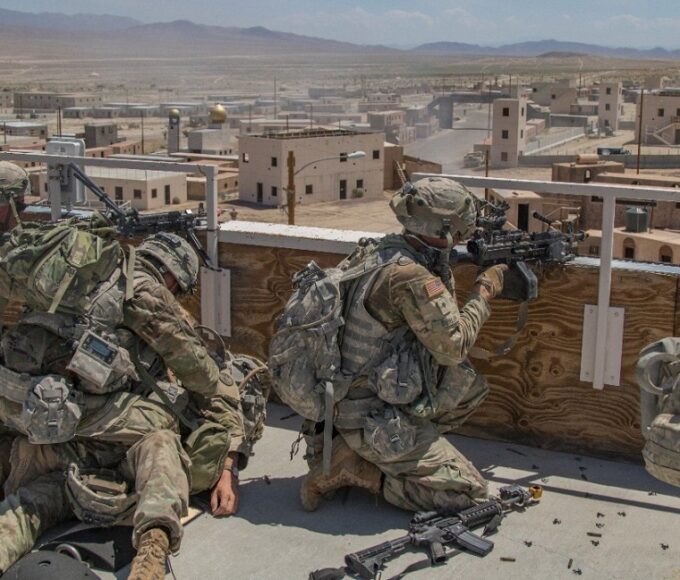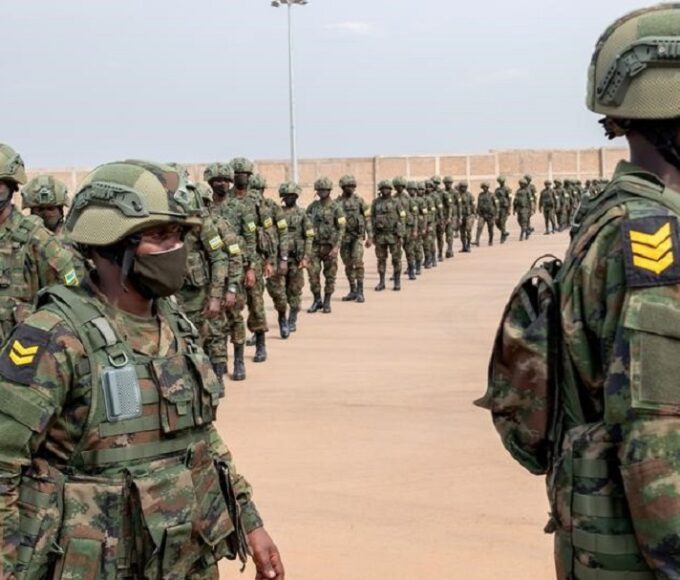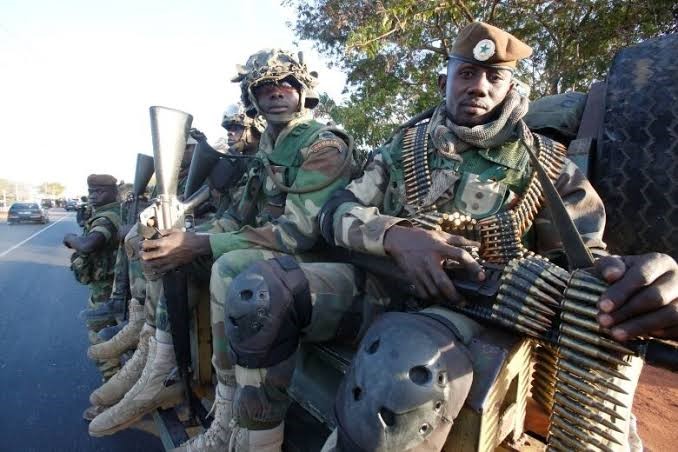Inside Africa’s Elite Ground Forces: Training, Tactics, and Traditions
According to the African Security Sector Index (2023), more than 35 African countries maintain at least one elite military unit, with over 120,000 troops across the continent trained to advanced or specialised ground combat standards.

Beneath the dust-choked drills and under the camouflage of discipline and duty lies a core force shaping Africa’s battlefield readiness: its elite ground forces. These units—ranging from special forces and rapid intervention brigades to presidential guards and counter-terrorism task forces—form the vanguard of African military capacity. They are forged through rigorous training, hardened in conflict zones, and bound by traditions that mix colonial legacy with modern innovation.
In an era of asymmetric threats, insurgencies, and hybrid warfare, Africa’s elite troops are more than combatants—they are strategic assets of national resilience. This report offers a rare lens into the world of Africa’s premier land forces, their evolving doctrines, and what makes them uniquely adapted to confront the continent’s complex security challenges.
Defining “Elite”: Beyond Bravado
Elite ground forces across Africa are characterised not just by superior weaponry or uniforms but by their doctrine, discipline, interoperability, and ability to project force rapidly. While each country’s designation varies, most elite units share several key features:
- Specialised selection processes
- Advanced tactical and urban warfare training
- Interoperability with international partners (e.g., U.S. AFRICOM, French G5 Sahel Mission, British Peace Support Teams)
- Deployment in high-risk zones for counter-insurgency, hostage rescue, and presidential security
According to the African Security Sector Index (2023), more than 35 African countries maintain at least one elite military unit, with over 120,000 troops across the continent trained to advanced or specialised ground combat standards.
Training the Best: Regimes of Resilience
African elite forces undergo some of the most demanding training regimes in the world—often blending foreign techniques with indigenous survival skills. Highlights include:
- Nigeria’s Special Forces Command (NSFC)
Formed in response to Boko Haram’s rise, the NSFC operates under the Nigerian Army and has become one of West Africa’s most battle-hardened units. Training is conducted at the Nigerian Army School of Infantry, Jaji, with support from the U.S. Army and British military advisors. The curriculum includes jungle warfare, parachute operations, counter-IEDs, and advanced marksmanship. - Egypt’s Thunderbolt Forces (Sa‘eqa)
Among Africa’s oldest elite units, Egypt’s Sa‘eqa forces were founded in the 1950s and trained by Soviet instructors. Today, they conduct multi-theatre exercises with Russian, French, and American forces. Known for their desert endurance and amphibious assault capabilities, they are routinely deployed in Sinai counterterror operations. - South Africa’s 5 Special Forces Regiment
A direct descendant of the apartheid-era Reconnaissance Commandos, this unit combines bushcraft with precision operations. Based in Phalaborwa, it is Africa’s most internationally connected special forces unit, working with NATO and SADC counterparts. Training includes HALO (High Altitude Low Opening) jumps, underwater demolitions, and tracking. - Kenya’s Ranger Regiment and Special Operations Forces (SOF)
Built with heavy U.S. support post-2003, Kenyan Rangers are trained to NATO standards and serve at the frontline of AMISOM missions in Somalia. The Long Range Surveillance Unit (LRSU) and 95 Airborne Brigade offer additional capacity for deep penetration and rapid response operations. - Algeria’s Parachute Commandos (Commandos Parachutistes)
Part of the People’s National Army (ANP), these units operate in counter-insurgency zones such as the Kabylie mountains. Algerian commandos are trained in desert tracking, high-altitude warfare, and hostage rescue operations, reflecting decades of fighting Islamist militant groups.
Training across Africa increasingly includes simulation systems, drone-assisted targeting, and joint multinational exercises, notably:
- “Flintlock” (U.S. AFRICOM)
- “Utulivu Africa” (EASF)
- “African Lion” (U.S.-Morocco)
Tactics and Doctrine: Asymmetric Adaptation
Africa’s elite ground forces have adapted uniquely to counter irregular warfare threats. From the forests of the Congo to the deserts of Mali, asymmetric tactics have shaped doctrine:
- Small unit mobility: Lightweight, flexible teams capable of operating independently for days.
- Hybrid warfare: Blending conventional tactics with psychological operations, drone reconnaissance, and cyber monitoring.
- Local intelligence fusion: Many elite units maintain deep ties with village militias, vigilantes, and local leaders to enhance human terrain mapping.
- Urban warfare readiness: With insurgents shifting to cities, elite forces train in mock towns with real-time scenario planning and civilian protection protocols.
For example, Burkina Faso’s COBRAs (Commando Units for the Safeguarding of the Republic) rely on speed and intelligence-led ambushes to confront extremist groups in the Sahel. Similarly, Mozambique’s FADM Quick Reaction Force, supported by Rwandan troops and EU training teams, has regained key districts in Cabo Delgado from insurgent control.
Command Culture and Tradition
Elite units are often steeped in national pride and military symbolism. Their ceremonies, badges, and mottos reflect deep-rooted values. These traditions build cohesion and morale—crucial for survival under fire.
- Morocco’s Royal Guard draws on centuries of royal military legacy, serving as both ceremonial and rapid deployment force.
- Uganda’s Special Forces Command (SFC) is closely aligned with presidential security and national rapid response, often combining loyalty with elite training.
- Ethiopia’s Agazi Commando Division, historically tied to the TPLF and post-Derg military reforms, remains one of the best mountain warfare forces in East Africa.
But tradition can be a double-edged sword. In several cases, elite units have been accused of excesses or loyalty to regimes over constitutions. This underscores the need for doctrinal clarity, democratic oversight, and independent command structures.
Strategic Roles: From Battlefields to Diplomacy
Africa’s elite ground forces are not limited to kinetic operations. Increasingly, they serve as tools of statecraft:
- Peacekeeping Deployment: Ethiopia, Rwanda, Ghana, and Senegal often deploy elite troops to UN and AU missions, enhancing Africa’s contribution to global peace.
- Border Security and Counter-Narcotics: Kenya, Nigeria, and Egypt deploy elite brigades to monitor porous frontiers against traffickers and terrorists.
- Disaster and Pandemic Response: During COVID-19, South Africa’s and Ghana’s elite troops supported enforcement and logistics, highlighting their dual-role capabilities.
These roles demonstrate the strategic utility of elite troops in grey-zone operations—where state capacity, not just combat power, is tested.
Building for the Future: Challenges and Opportunities
Despite their successes, African elite ground forces face pressing challenges:
- Equipment modernisation: Many units still rely on aging Soviet-era rifles or outdated night vision gear.
- Mental health support: Post-trauma care is often overlooked despite long deployments and high-risk operations.
- Gender integration: While countries like Rwanda and South Africa are integrating women into elite roles, most units remain male-dominated.
- Budget constraints and politicisation: Funding cuts or excessive political control can degrade unit effectiveness and public trust.
Nonetheless, African militaries are seizing new opportunities:
- Launching domestic special forces academies in Egypt, Nigeria, and Ethiopia.
- Increasing trilateral training with non-Western partners such as Turkey, the UAE, and India.
- Promoting Pan-African interoperability, as seen in SADC and EASF joint deployments.
Africa’s Ground Guardians
Africa’s elite ground forces represent more than boots on the ground—they are symbols of state sovereignty, resilience, and strategic evolution. As insurgencies shift, geopolitics intensify, and African militaries shoulder more regional security responsibility, elite units will play a defining role in defending the continent’s future.
But power must be matched with professionalism, agility with accountability, and might with moral authority. The elite soldier of Africa is no longer just a warrior—but a peacekeeper, a strategist, and a guardian of democratic order.
Elite Ground Forces by the Numbers (2023–2024):
- 35+ African nations maintain elite military units
- Estimated 120,000 elite troops across the continent
- Nigeria’s Special Forces Command comprises 10,000+ personnel
- 46 countries participated in Flintlock 2024 military exercise
- $2.1 billion spent on special forces development continent-wide in 2023 (SIPRI)
- Over 30 elite African units have seen active deployment in anti-insurgency or peacekeeping operations since 2020
Follow African Defence & Security Magazine for deep dives into the forces shaping Africa’s security landscape—on land, at sea, in the air, and across the digital frontier.
Recent Posts
Categories
- Air & Aerospace17
- Border Security15
- Civil Security6
- Civil Wars4
- Crisis5
- Cyber Security8
- Defense24
- Diplomacy19
- Entrepreneurship1
- Events5
- Global Security Watch6
- Industry8
- Land & Army9
- Leadership & Training5
- Military Aviation7
- Military History27
- Military Speeches1
- More1
- Naval & Maritime9
- Policies1
- Resources2
- Security12
- Special Forces2
- Systems And Technology9
- Tech6
- Uncategorized6
- UNSC1
- Veterans7
- Women in Defence9
Related Articles
URBAN WARFARE PREPAREDNESS IN AFRICAN CITIES
Africa’s cities are rapidly becoming central to the continent’s security challenges. With...
ByKing Richard Igimoh, Group Editor ALOJanuary 12, 2026LAND & ARMY – AFRICA’S ELITE ARMY UNITS: WHO SETS THE STANDARD?
By late 2025, Africa’s elite army units stand at the sharp end...
ByKing Richard Igimoh, Group Editor ALODecember 22, 2025THE EVOLUTION OF AFRICAN INFANTRY WEAPONS from 1960
In the wake of widespread decolonization across Africa during the 1960s, newly...
ByKing Richard Igimoh, Group Editor ALOSeptember 5, 2025Private Military Contractors in Africa – Mercenaries, Partners, or Spoilers?
In Africa’s security environment, one of the most polarising forces is the...
ByKing Richard Igimoh, Group Editor ALOAugust 12, 2025





